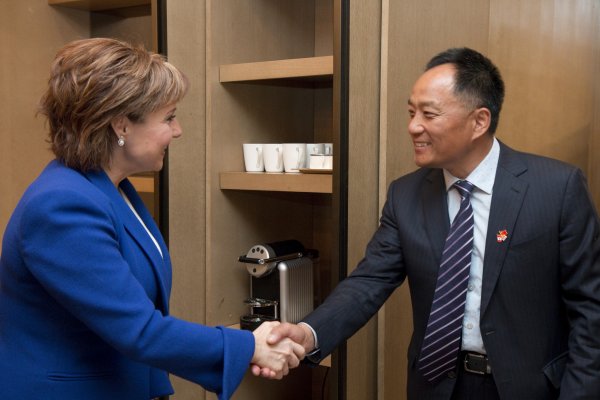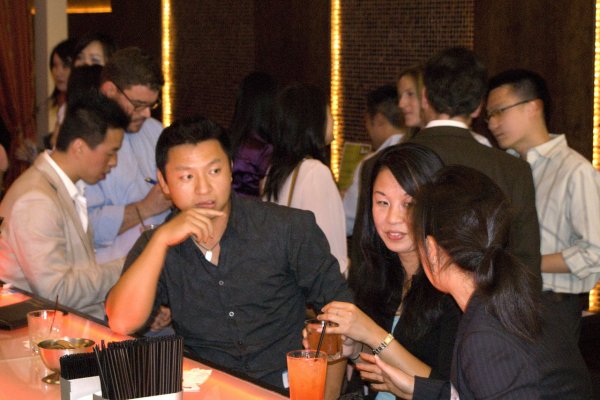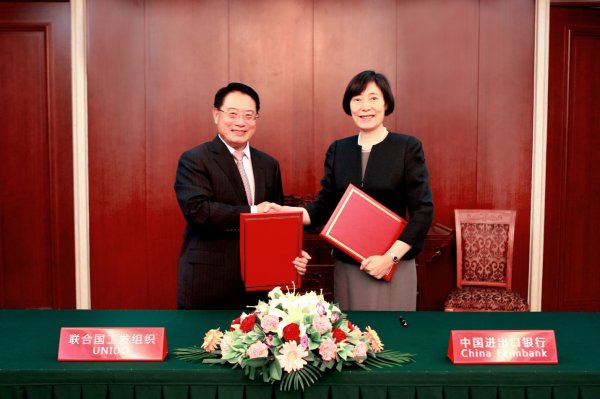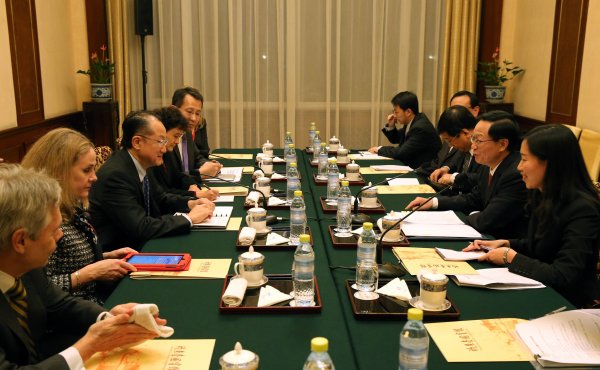Business Culture: The Business Experience
Business Style
Since joining the World Trade Organization in 2001, China has experienced rapid and consistent economic growth, and has become one of the top five largest economies in the world. In spite of this recent influx of high-technology enterprises and modern workplaces, business in China rests on centuries of Confucianism, or the concept of harmonious relationships. The Chinese generally value relationships that demonstrate mutual respect, an aversion to conflict, and the maintenance of proper demeanor, and these beliefs extend into the business world as well. Business relationships are generally very formal, and the Chinese place great importance on the collective good of the company, as well as saving face, or defending and building a positive professional reputation.
Business deals in China tend to move more slowly than Westerners may be accustomed to. Formal introductions from an inside contact are usually required to even begin a working relationship; due to the political makeup of the People's Republic of China, bureaucracy typically delays most business transactions. The Chinese will conduct extensive research on potential partner or vendor companies, as well as company representatives, and it is beneficial for visitors to do the same.
While there are many regional dialects of the Chinese language, the most well-known dialects are Cantonese and Mandarin. The latter is the most common, and the official language of the People's Republic of China. However, given the scale of dialect variations in the country, even visitors who speak Chinese, when working with Chinese contacts who speak English, may experience difficulties without a hired translator. Dealings can be hindered by miscommunication and misunderstandings, and the sensitive nature of saving face can make or break the relationship, so it is advisable to go over business items and conversations more than once to ensure both parties are agreeing to the same terms.
For a Chinese businessperson, saying "no" could result in losing face or causing embarrassment to his/her employer and family. In fact, Chinese people typically send intermediaries to give bad news, as they want to soften the blow to preserve the relationship, and do not want to risk losing face. Business visitors are advised to choose their words and actions carefully in meetings to allow their Chinese counterparts to keep face at all times. For example, instead of criticizing or pointing out the mistakes of a Chinese contact, it will behoove the visitor to simply remain silent. Speaking up in this type of situation may cause both parties to lose face and possibly end the business relationship permanently.
Relationship Building
Business relationships in China will typically develop very slowly and remain very formal. The Chinese typically view business travelers as company representatives, rather than personal individuals. All dealings and conversations should remain professional and impersonal until the Chinese contact initiates a more informal gesture, such as asking the visitor to use his or her given name. Rank is very important to Chinese professionals, and visitors should keep rank differences in mind during all conversations and communications.
It is common for business visitors to be invited to dinner and drinks during negotiations. In these settings, the traveler should defer to the host regarding conversation topics. Most Chinese professionals separate socializing and work, and they will not talk business over dinner. However, visitors should remember that even non-business-related communication should remain formal and reserved. All conversations outside the workplace will be considered when the Chinese contacts are making business decisions.
Respect and honor are extremely important in Chinese business relationships. The Chinese contact and the visitor may gain or lose face through their own actions, public knowledge of their actions, showing respect for others, compliments or criticism from third parties, mistakes (making them or avoiding them), experience, and age.
Etiquette
While bowing is the common greeting in China, most Chinese people will offer a handshake to Westerners. When meeting your Chinese counterparts for the first time, the senior person on your team should formally greet the eldest or most prominent member of the Chinese team first. He or she should be addressed with his or her honorific title, such as "Doctor," along with his or her surname, and the translator will generally assist with the introduction formalities. Always allow the Chinese contacts to leave the room first after a meeting's conclusion.
Bring business cards that are translated into simplified Chinese characters on one side in an auspicious color, such as gold. The visitor's title, as well as any prominent facts about his or her company, such as if it is the largest in the country, should be printed on the business card. Present the business card to the Chinese contact with both hands, with the Chinese side facing up. Always examine the Chinese contact's card before placing it in a card case or the table. Never write on the card or put it in a back pocket.
Direct eye contact is generally favored in a business setting, but it is a show of respect to lower one's head for an elder. In China, physical contact does not occur in business settings, and Chinese people in the workplace generally stand around an arm's length from each other. Visitors should never pat, slap, or put arms around a Chinese contact. Body posture should remain formal, yet calm and relaxed, to display a sense of self-control and attentiveness.
Article written for World Trade Press by Kerrie Main.
Copyright © 1993—2025 World Trade Press. All rights reserved.

 China
China 



